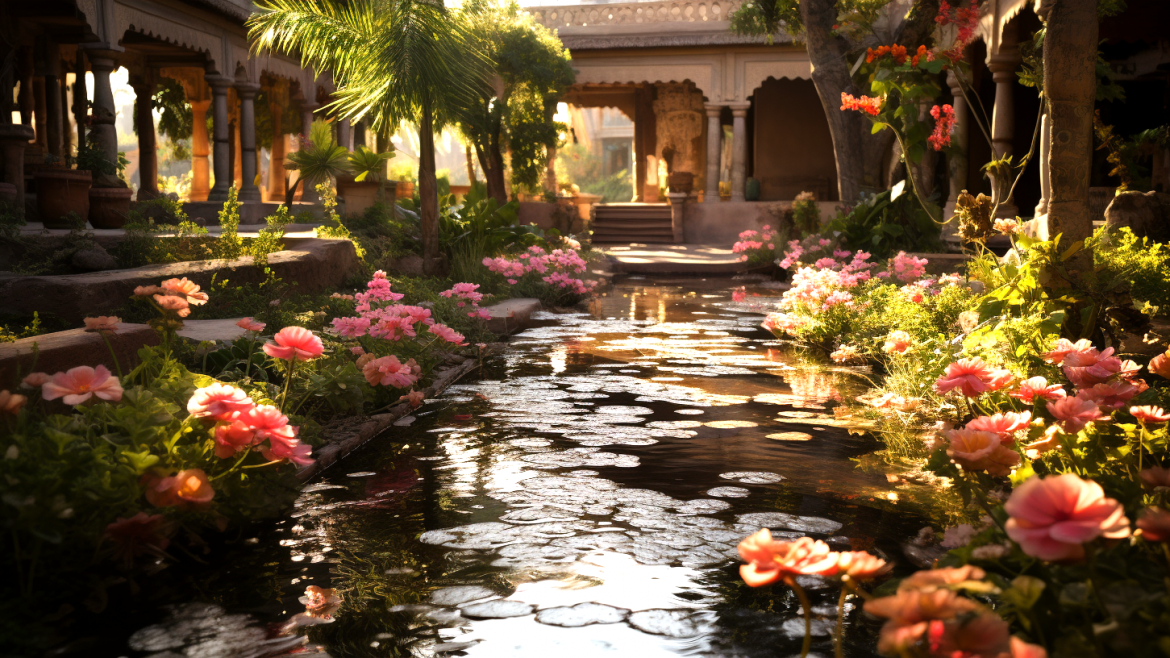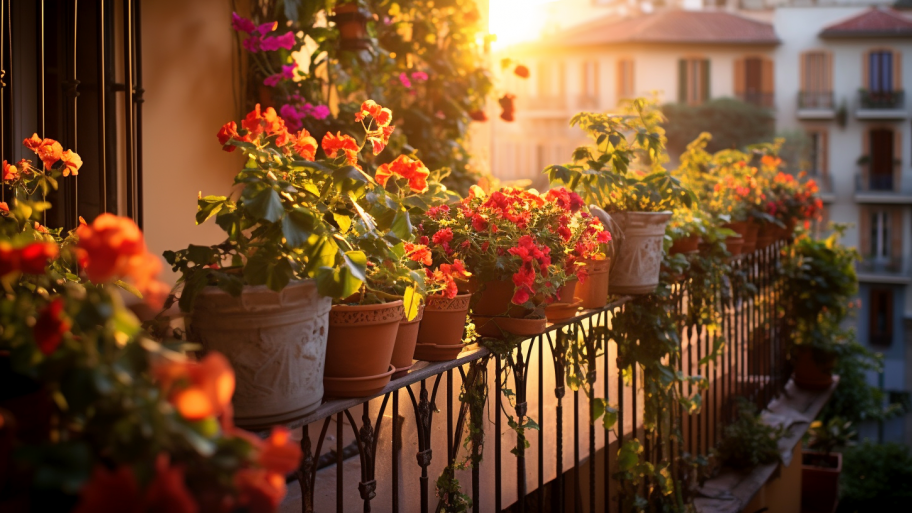India’s vibrant history and rich cultural heritage are reflected in the captivating design of traditional Indian gardens. These gardens, often inspired by religious and philosophical principles, served as sanctuaries for spiritual growth, relaxation, and a deep connection with nature. From the exquisite Mughal gardens to the serene temple gardens, Indian garden design has evolved over time, incorporating various elements that make it unique and enchanting.
One of the essential principles of traditional Indian garden design is the concept of balance and harmony. Gardens were meticulously planned, with attention to the arrangement of plants, water features, and architectural elements. This careful design aimed to create a calming atmosphere, promoting meditation and spiritual growth. It was not uncommon to find sacred spaces within these gardens, such as temples or statues, which further enhanced the spiritual ambiance.
Water played a significant role in Indian garden design. Ponds, pools, and fountains were often incorporated into the garden layout, symbolizing life, purity, and abundance. The soothing sound of flowing water added to the tranquility of these spaces, while also serving a practical purpose of irrigating the plants. Water features were often surrounded by lush vegetation, creating a cool, inviting oasis amidst the heat of the Indian climate.
Plant selection in traditional Indian gardens was purposeful, with a focus on species that provided shade, fragrance, or had medicinal properties. Trees like the banyan (Ficus benghalensis) and peepal (Ficus religiosa) were common choices for their impressive canopies, providing shelter from the sun and a serene environment for contemplation. Flowering plants like jasmine (Jasminum spp.) and marigold (Tagetes spp.) filled the air with their sweet aroma, while also holding cultural and religious significance.
Here are some examples of plants from ancient India that could be grown in modern gardens:
- Banyan tree (Ficus benghalensis)
- Peepal tree (Ficus religiosa)
- Jasmine (Jasminum spp.)
- Marigold (Tagetes spp.)
- Tulsi (Ocimum sanctum)
- Neem (Azadirachta indica)
- Aloe vera (Aloe barbadensis)
- Ashwagandha (Withania somnifera)
- Champa (Plumeria spp.)
- Sandalwood (Santalum album)
To incorporate elements of traditional Indian garden design in your own space, consider these Amazon products:
- Solar-Powered Water Fountain Pump: Add a touch of tranquility to your garden with this easy-to-install, solar-powered water fountain pump.
- Meditation Buddha Statue: Create a focal point for contemplation with this serene, high-quality meditation Buddha statue.
- Brightech Ambience Pro Waterproof LED Outdoor String Lights: Enhance the ambiance of your outdoor space with these durable, waterproof LED string lights, providing warm, inviting illumination for your garden gatherings or quiet moments of reflection.
In summary, traditional Indian garden design is a captivating blend of spirituality, harmony, and a profound connection to nature. By incorporating elements of these ancient gardens into your own space, you can create a tranquil oasis that transcends tim




